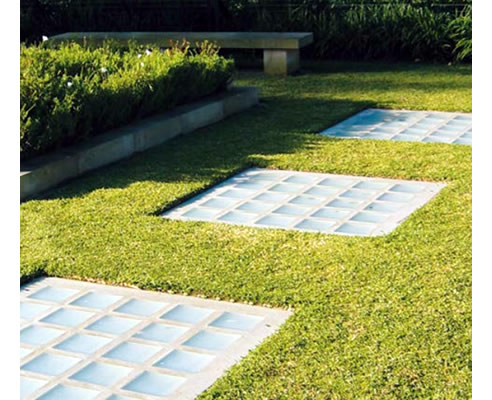Glass Block Paving: A Modern Twist on Light, Strength, and Style

Strong 8k brings an ultra-HD IPTV experience to your living room and your pocket.
In the world of architectural and landscape design, materials that combine function and aesthetics are always in high demand. One such material making a quiet comeback is glass block paving—a bold, light-transmitting alternative to traditional pavers like concrete or brick. Known for its durability, elegance, and ability to filter natural light, glass block paving is ideal for both indoor and outdoor applications.
From driveways and patios to commercial courtyards and rooftop decks, glass pavers are turning heads in modern construction. This article explores the benefits, uses, installation process, and care tips for glass block paving.
What Is Glass Block Paving?
Glass block pavers are solid or hollow blocks of tempered glass, typically square or rectangular, designed to be used as walkable or drivable surfaces. Unlike the hollow glass blocks used in windows or walls, glass pavers are manufactured to handle heavy loads and high foot traffic.
These pavers can be clear, frosted, colored, or textured—allowing architects and designers to create striking visual effects with daylight or artificial lighting.
Key Benefits of Glass Block Paving
Transmits Natural Light
One of the most unique qualities of glass pavers is their ability to let light pass through. This makes them especially useful for:
Rooftop gardens over living spaces
Basement areaways
Courtyards above parking garages
Decks with spaces below
They enhance brightness in dark areas while maintaining surface strength.
Strength and Durability
Despite their glass composition, these blocks are engineered to withstand pressure and wear. Many are reinforced with laminated or bonded layers to meet traffic and safety standards.
Aesthetic Versatility
Available in multiple finishes, colors, and patterns, glass block paving can complement a wide range of architectural styles—from industrial to contemporary.
Slip Resistance
High-quality glass pavers are treated or textured to provide slip resistance, making them safe even when wet.
Eco-Friendly and Sustainable
By maximizing the use of natural light and reducing artificial lighting needs, glass paving can contribute to energy efficiency and sustainability goals in both residential and commercial buildings.
Where Is Glass Block Paving Used?
While not as commonly seen as concrete or stone, glass block paving is highly specialized and often found in:
Urban rooftop terraces
Outdoor patios and decks
Museum and gallery floors
Retail and showroom entries
Walkable skylights
Architectural accent zones
Public plazas
In luxury homes and high-end commercial spaces, it’s often used to create a "wow factor" or increase natural daylight penetration below ground level.
Installation Process
Installing glass block paving requires precision and knowledge of structural support systems. Here's a general overview:
Structural Planning
Depending on the load requirements, a reinforced concrete or steel support grid may be required beneath the glass pavers.
Framing and Setting
Glass blocks are placed within pre-measured grids or panels using spacers or metal frames, allowing for proper expansion and load distribution.
Grouting and Sealing
A waterproof, UV-stable grout or sealant is applied between the blocks to prevent shifting and water ingress.
Finishing and Surface Treatment
To improve traction, anti-slip coatings or sandblasting may be applied to the top surface.
Pro Tip: Always use installers familiar with glass block systems to avoid improper handling or breakage.
Maintenance and Care
Glass block pavers are relatively low maintenance, but here are a few tips:
Clean regularly with non-abrasive glass cleaners
Inspect seals annually to ensure water resistance
Avoid using metal tools that could scratch or chip the surface
Keep the surface free from debris to maintain traction
Well-maintained glass pavers can last for decades while maintaining their clarity and strength.
Cost Considerations
Glass block paving is more expensive than traditional paving options due to the specialized material and installation requirements. Pricing can vary, but you might expect:
$25 – $50+ per square foot (materials and labor included)
Custom installations with structural integration can exceed $100 per sq. ft.
This makes it more suitable for architectural features or accent areas than full-scale driveways in most residential projects.
Glass block paving is more than just a design choice—it’s a fusion of art, engineering, and sustainability. Whether you want to brighten a dark space, make a bold architectural statement, or invest in a unique flooring solution, glass pavers can deliver stunning results.
While it’s not for every budget or application, when used thoughtfully, glass block paving can elevate your space with style and function that few other materials can match.
Note: IndiBlogHub features both user-submitted and editorial content. We do not verify third-party contributions. Read our Disclaimer and Privacy Policyfor details.


